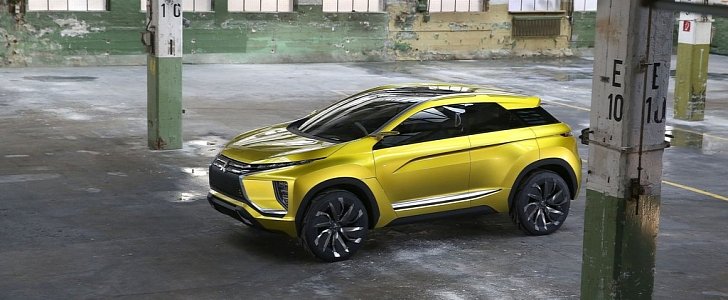If there was ever something positive to take out of wars and weapon development, it's that armed conflicts can often drive the technological progress forward at greatly accelerated speeds.
We're about to witness another example that builds on this idea as Mitsubishi Electric Corp., an air-to-air missile supplier for the Japanese Army, is about to shift the focus of its expertise toward the self-driving car market.
Mitsubishi is a little late to the party, but with such solid backing, it's got all the chances in the world to make up for any lost ground. The Japanese carmaker isn't openly interested in building a completely autonomous vehicle (even though it did show one in Tokyo last year), but certain features - such as emergency braking or lane keeping assist - are becoming increasingly commonplace across all segments. If it wants its products to remain competitive in all markets, Mitsubishi has the option to develop its own systems, or buy from those already in the business.
Usually, when you lose the train, the smart thing to do, economically speaking, is to go for the buying option, but Mitsubishi says it will be able to offer solutions that are at least just as good as the competition's no later than next year. Millimeter-wave radars, sonars, sensors and cameras have already been developed by another branch of the company for missile guidance, so all it needs to do now is find a way to adapt them to the needs of a self-driving car.
“All we have to do is to put together the components that we already have,” said Katsumi Adachi, a senior chief engineer with Mitsubishi, talking to Bloomberg. “None of our competitors have such a wide array of capabilities.” The focus is on self-braking and lane keeping systems, the production of which is scheduled to begin in exactly one year. Another year later and Mitsubishi could also delve into the self-parking technology.
The biggest challenge the company will have to overcome is cost-cutting. The prices the military is willing to pay for some products are light years away from what the end user can afford when buying a new car. So while Mitsubishi does have the necessary technology, it'll need to largely re-think it before it can make the transition to a free market. “There's a long way to go,” Mr. Adachi concluded.
Mitsubishi is a little late to the party, but with such solid backing, it's got all the chances in the world to make up for any lost ground. The Japanese carmaker isn't openly interested in building a completely autonomous vehicle (even though it did show one in Tokyo last year), but certain features - such as emergency braking or lane keeping assist - are becoming increasingly commonplace across all segments. If it wants its products to remain competitive in all markets, Mitsubishi has the option to develop its own systems, or buy from those already in the business.
Usually, when you lose the train, the smart thing to do, economically speaking, is to go for the buying option, but Mitsubishi says it will be able to offer solutions that are at least just as good as the competition's no later than next year. Millimeter-wave radars, sonars, sensors and cameras have already been developed by another branch of the company for missile guidance, so all it needs to do now is find a way to adapt them to the needs of a self-driving car.
“All we have to do is to put together the components that we already have,” said Katsumi Adachi, a senior chief engineer with Mitsubishi, talking to Bloomberg. “None of our competitors have such a wide array of capabilities.” The focus is on self-braking and lane keeping systems, the production of which is scheduled to begin in exactly one year. Another year later and Mitsubishi could also delve into the self-parking technology.
The biggest challenge the company will have to overcome is cost-cutting. The prices the military is willing to pay for some products are light years away from what the end user can afford when buying a new car. So while Mitsubishi does have the necessary technology, it'll need to largely re-think it before it can make the transition to a free market. “There's a long way to go,” Mr. Adachi concluded.

